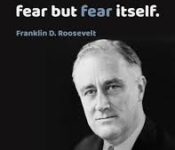When You Are On Your Own

When You Are on Your Own
We humans are social creatures; we are not designed to live alone. We prefer companionship, connection, and emotional engagement. However, sometimes we shy away from community because we feel a need for alone time. These withdrawals are understandable, but they are also dangerous. There is strength in numbers, and we are vulnerable when we are alone.
I am not referring to physical vulnerability, although that is often the case as well. When we walk in dangerous neighbourhoods, we are more vulnerable alone than in a crowd. But I am referring here to spiritual vulnerability. When we are alone and no one is watching, we are more likely to do things we would never do if others were present.
If you are walking down a country lane alone, you are more likely to pick fruit off a private apple tree. After all, who will know you stole an apple? If you are alone in your office and there is no electronic monitor on your computer, you are more likely to engage with inappropriate content. When you work alone from home and are paid by the hour, you are more likely to slack off on the company’s dime.
Being with others keeps us in line. We are social creatures and care about what others think. We don’t want to be seen in our worst light, so we always try to put our best foot forward. Our sages instruct us never to abandon the community. If we are part of a group, we will rise to their level. A high tide raises all ships. There will always be individuals who are bad apples, but they are individuals. The group sticks to proper standards of right and wrong.
The Stragglers
This brings us to a fascinating passage at the very end of our Torah portion. It speaks of the cruel Amalekites who attacked our people in the desert. Amalek “attacked you by surprise and mutilated all the weak ones at your rear” (Deuteronomy 25:18).
Our sages taught that Amalek was unable to attack the mainstream Jewish camp because they were surrounded by a miraculous cloud canopy that acted like a fortress. Amalek couldn’t break into the fortress. However, several stragglers did not want to be part of the community. They lagged behind and a few of them slipped out of the protective cloud-canopy. The moment they slipped out, they became “the weak ones,” vulnerable to Amalek.
Those are the only Jews that Amalek could attack. He jumped all over them ferociously until the Jews organized a counterstrike and drove him away.
The Power of Apathy
There are several powerful lessons here. Amalek is seen in Jewish literature as a force of apathy. Every biblical nation represented an emotional trait. The wicked nations exploited these traits for malevolent purposes. The Amalekites knew the Jews would counter-attack and destroy them. Yet, they did not care. They were apathetic about their survival so long as they could attack a handful of Jews.
Amalek embodied the destructive trait of apathy, and it rubbed off on some Jews. Ever since, we need to guard and fight against apathy. If we are not careful, we can quickly grow apathetic about G-d, holiness, and Judaism.
The question is then, who is vulnerable to spiritual apathy? The answer is those who step away from the community and cast about on their own. They think they can be just as devoted and enthusiastic when praying at home as when praying in a group. They can be just as proficient when they study at home as when they join a class. They can be just as committed to their causes when they pursue them independently as when they volunteer with a group.
The truth is, we can’t. The moment we are on our own, we become vulnerable to Amalek. Causes or commitments about which we were enthusiastic when we were part of a group become a burden when we are alone. It doesn’t take long for apathy to set in. On our own, we grow lax. No one will know, we tell ourselves, if we skip our commitments just once. Before long, it becomes a routine, and we lose our sensitivity to the importance of the entire thing.[1]
What is the solution?
Bring Them Home
We need to do exactly what our ancestors did when some Jews slipped out of the camp and became vulnerable to Amalek. The community inside the clouds, mobilized and left the fortress to fight Amalek and liberate the few Jews from apathy. We need to find every Jew who is lost to the community and gather them in. If they don’t come, we need to bring the community to them.
If you know someone who refuses to attend services on Rosh Hashanah, consider organizing a group to visit them in their home. Bring along the food and involve them in a Rosh Hashanah dinner. A night that would have been ordinary will turn into a bright, warm festival because you brought the community to them. If they won’t come to hear the Shofar, bring a shofar to them.
Envelop them in the warm fold of community, and before long, they will be excited again. Their careless, listless, apathetic approach will evaporate as they respond to the dynamic community impulse.
A Community of Individuals
Though the many are stronger than the individual, the group is comprised of individuals. We can’t be philosophical about the loss of any member of the community. We can’t say, “Well, we invited them, but they refused.” We did our part, and at least we still have a community.
That is not how it works. A community is no stronger than the sum of its parts. If even one Jew is missing, the community is weaker. The community needs its individuals just as individuals need their community.
This is why Israel leaves no stone unturned to bring every hostage home. The Jewish community cannot be whole if it is missing even one of its parts. How much more so, if it is missing forty-eight parts?
Besides, a community that doesn’t care about its individuals is not a community. What good is a community that is apathetic about those who left it? The power of community lies in empathy; therefore, when someone steps away, the community comes together to care.
This Rosh Hashanah, let’s not sit back and be happy with the people around our table. Let’s take a few hours before Rosh Hashanah to think of those who are alone. Let’s reach out and invite them in. If they won’t come, let’s not give up. Let’s go to them and bring Rosh Hashanah to them.
Hopefully, having experienced the acceptance, friendship, empathy, and love of community, they will be at your table for Sukkot. They will join you as happy, vibrant members of the community.
May the entire Jewish people come together in the coming year as a single community with all our hostages safe and intact. Amen.
[1] This insight is offered by Rabbi Yitzchak Meir Alter, Chidushie Harim, Deuteronomy 25:18.
Tags: community






















